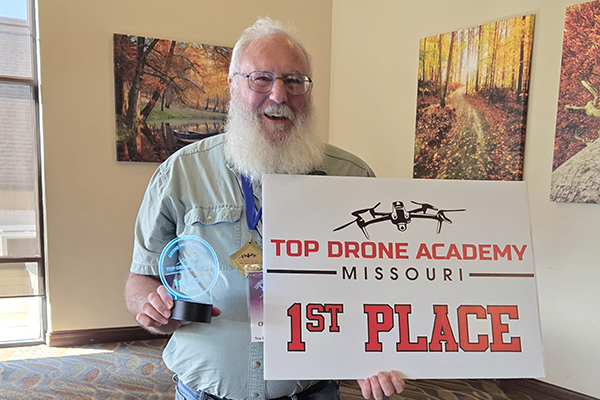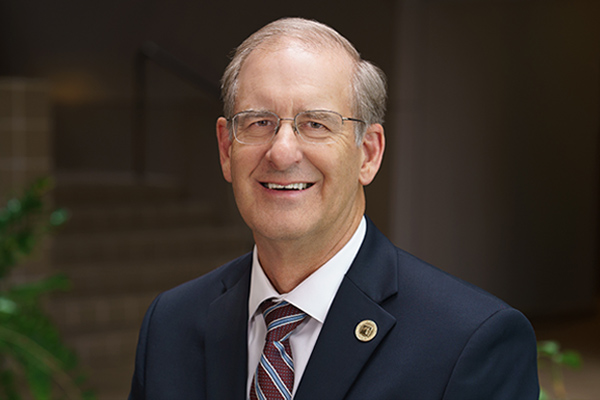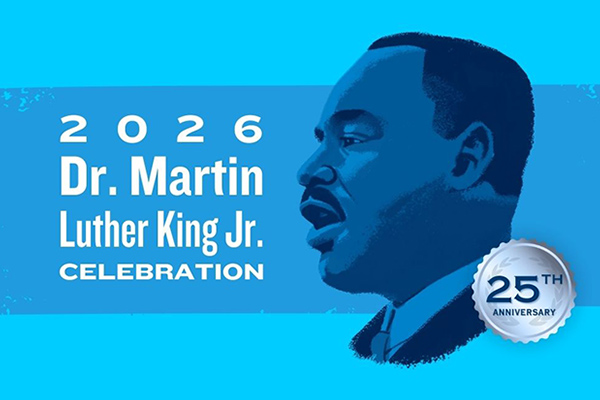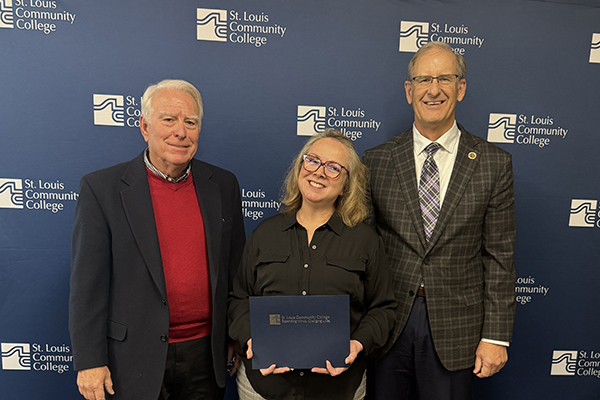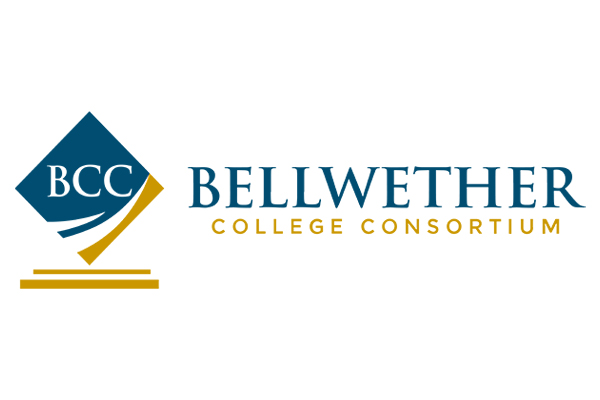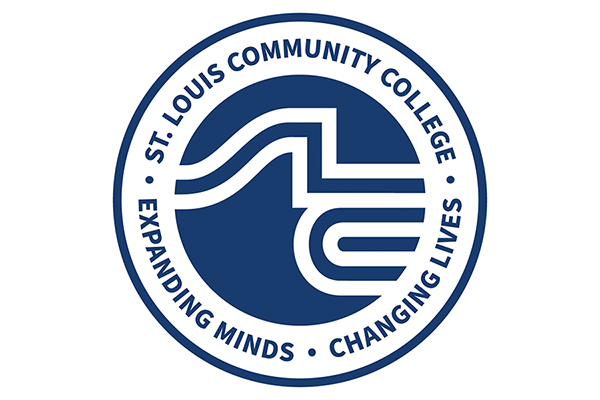Freeman Named Finalist for Nation’s Top STEM Mentoring Honor
July 09, 2024
Posted by STLCC in News Resources

He won St. Louis Community College’s David L. Underwood Memorial Lecture Award, the Gateway Professionals Chapter of the National Society of Black Engineers Lifetime Achievement Award and fingers crossed, finalist Terrence Freeman, PhD, will win a Presidential Award for Excellence in Science, Mathematics and Engineering Mentoring.
Freeman, adjunct faculty of engineering science at St. Louis Community College at Florissant Valley, is one of 32 individual finalists for the PAESMEM.
Only one other individual finalist for the prestigious awards that honor mentors who work with underrepresented groups to develop fully the nation's human resources in STEM teaches at a community college. Six organizations were also named finalists.
The National Science Foundation administers the awards on behalf of the White House Office of Science and Technology Policy.
Finalists were selected based on their:
- Mentoring philosophy and strategies.
- Assessment and outcomes.
- Reflective practice.
- Leadership and sustainability.
“Terry’s exemplary and lifelong mentoring efforts have had a significant impact on the academic and professional development of STEM students at STLCC and beyond,” said Elizabeth Gassel Perkins, EdD. campus president and chief academic officer of St. Louis Community College at Florissant Valley.
“This recognition shines a well-deserved spotlight on his dedication, effectiveness and contributions to fostering a diverse and inclusive STEM workforce.”
On July 9, Freeman – along with fellow PAESMEM finalists – will be honored at a Virtual Finalist Celebration Event where he will hear from NSF speakers and be recognized with a slide that features his name, St. Louis Community College, photograph, and short summary. After the acknowledgement, Freeman will also have an opportunity to connect with fellow finalists and past awardees from around the country in small breakout groups during a 30-minute networking session.
Each Presidential Awardee will receive a certificate signed by the president of the United States, a $10,000 award from the NSF and an all-expenses paid trip to a recognition event, which includes an award ceremony.
Activities at the event may also include professional development opportunities and discussions with policymakers about how to improve STEM mentoring. Awardees join a cohort of award-winning mentors who have an opportunity to impact mentoring on a national scale.
An African American male whose parents were not college graduates, Freeman knows what it is like to be the only African American in an engineering classroom or department and attend schools where your capabilities are doubted.
“I never had an African American or Latino professor through my master’s degree, and I was the first engineering professor of color hired at STLCC,” he said.
“I chose community college as a staging platform, because 40-50% of students in higher education are on community college campuses. I wanted to increase exposure, access and agency among the students who chose to attend.”
A mentor for over 40 years, Freeman created what he describes as a horizontally and vertically integrated mentoring ecosystem to connect mentees and role-players that influence success and sustainability.
“It’s a ‘neighborhood,’ and I serve as an advocate and guide,” he said. “I meet students where they are, listen to their aspirations and fears, expose them to STEM opportunities, connect them to resources, and challenge them to take ownership of their growth,” Freeman said.
Alex Merritt, vice president of program operations for Twin Cities RISE, feels fortunate she did not have to scale systemic barriers on college campuses as an African American woman without a guide, especially considering her unique personal and social background.
“I was a first-generation college student who grew up in foster care, with no role models of professional success in my immediate family. I ended up pursuing engineering by chance,” she said.
“My preparation for success needed to be improved; the learning curve was beyond steep, and my completion inconceivable, but for the instruction, guidance and mentorship provided by Dr. Freeman.”
When Marcus Huggans, PhD, senior director of external relations at the National GEM Consortium, met Freeman as a sophomore in high school, it inspired him to reject mediocrity. It also gave him an example of a successful engineer to pattern his life after.
“The confidence that Dr. Freeman helped instill in me not only helped me obtain a bachelor's degree in electrical engineering, but it also gave me the fortitude to pursue and complete both a master's degree and PhD in engineering management,” Huggans said.
“Four of my proudest life moments were when my mentor and cheerleader came to my HS, BS, MS, and PhD graduations. On the day I received my PhD as the first African American male in my major at that institution, he told me that he was returning to school to pursue his PhD. That was when the student became an example for his teacher. I asked Mr. Freeman how I could repay him for all the time he invested in me. He said, ‘You can never repay me, but you can reach back and share the principles I taught you with the students that come after you.’ I have spent over 30 years trying to do exactly that.”
Some of the opportunities Freeman helped connect mentees to include the Emerson Electric Cooperative Minority Engineering Transfer Program, which began at STLCC in 1988. Freeman was heavily involved in coordinating the program that partnered with Emerson and the University of Missouri to provide scholarship and transfer opportunities to underrepresented students.
In 1997, he began working with the Gateway Professionals Chapter of the National Society of Black Engineers to provide a Pre-College Initiative for third through 12th grade students interested in STEM. He facilitated the partnership between STLCC and the NSBE-PCI that brought the organization onto the campus in 2005.
In 1998, STLCC-Florissant Valley’s Engineering Club became NSBE’s first community college chapter in the country. Freeman took students to regional and national conventions every year from 1998 through 2019. After the interruption of COVID-19, the group resumed conference attendance in 2023.
Freeman has reviewed and worked on many NSF grants. From 1989 to 1993, he coordinated Project Chart, the community college component of a multi-institution National Science Foundation grant to create the Regional Science and Technology Career Access Center.
The White House is expected to announce multiple individual and organizational winners at a future date, so Freeman’s students and mentees will have to wait to discover when and if they can brag that they were taught by a PAESMEM.
